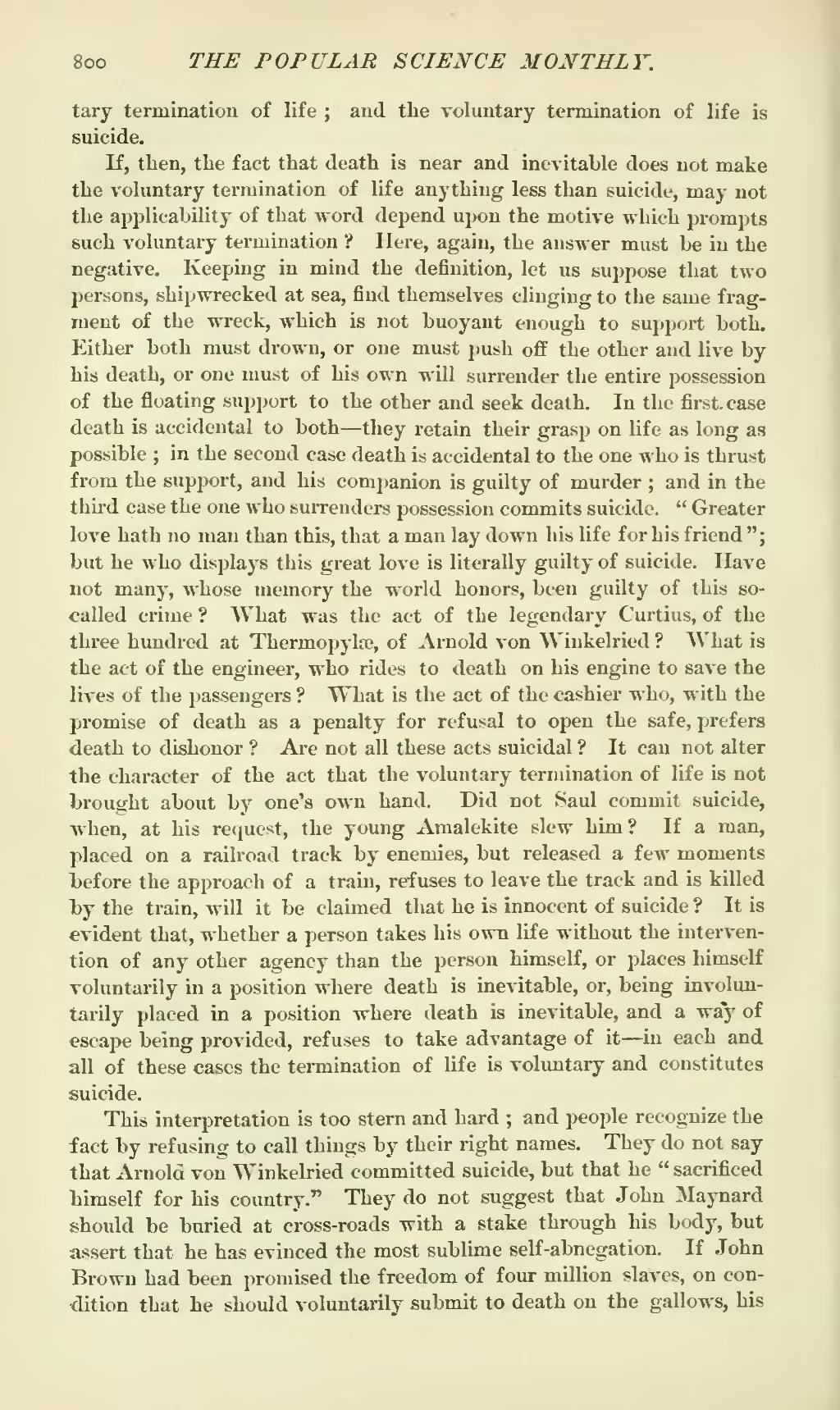tary termination of life; and the voluntary termination of life is suicide.
If, then, the fact that death is near and inevitable does not make the voluntary termination of life anything less than suicide, may not the applicability of that word depend upon the motive which prompts such voluntary termination? Here, again, the answer must be in the negative. Keeping in mind the definition, let us suppose that two persons, shipwrecked at sea, find themselves clinging to the same fragment of the wreck, which is not buoyant enough to support both. Either both must drown, or one must push off the other and live by his death, or one must of his own will surrender the entire possession of the floating support to the other and seek death. In the first, case death is accidental to both—they retain their grasp on life as long as possible; in the second case death is accidental to the one who is thrust from the support, and his companion is guilty of murder; and in the third case the one who surrenders possession commits suicide. "Greater love hath no man than this, that a man lay down his life for his friend"; but he who displays this great love is literally guilty of suicide. Have not many, whose memory the world honors, been guilty of this so called crime? What was the act of the legendary Curtius, of the three hundred at Thermopylæ, of Arnold von Winkelried? What is the act of the engineer, who rides to death on his engine to save the lives of the passengers? What is the act of the cashier who, with the promise of death as a penalty for refusal to open the safe, prefers death to dishonor? Are not all these acts suicidal? It can not alter the character of the act that the voluntary termination of life is not brought about by one's own hand. Did not Saul commit suicide, when, at his request, the young Amalekite slew him? If a man, placed on a railroad track by enemies, but released a few moments before the approach of a train, refuses to leave the track and is killed by the train, will it be claimed that he is innocent of suicide? It is evident that, whether a person takes his own life without the intervention of any other agency than the person himself, or places himself voluntarily in a position where death is inevitable, or, being involuntarily placed in a position where death is inevitable, and a way of escape being provided, refuses to take advantage of it—in each and all of these cases the termination of life is voluntary and constitutes suicide.
This interpretation is too stern and hard; and people recognize the fact by refusing to call things by their right names. They do not say that Arnold von Winkelried committed suicide, but that he "sacrificed himself for his country." They do not suggest that John Maynard should be buried at cross-roads with a stake through his body, but assert that he has evinced the most sublime self-abnegation. If John Brown had been promised the freedom of four million slaves, on condition that he should voluntarily submit to death on the gallows, his
